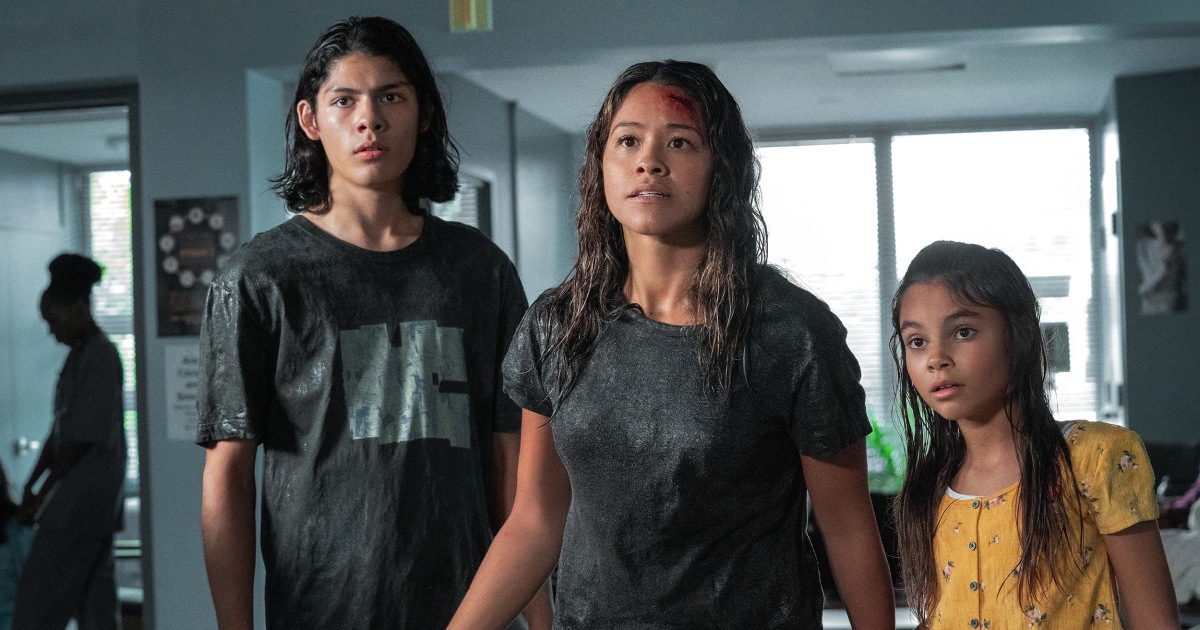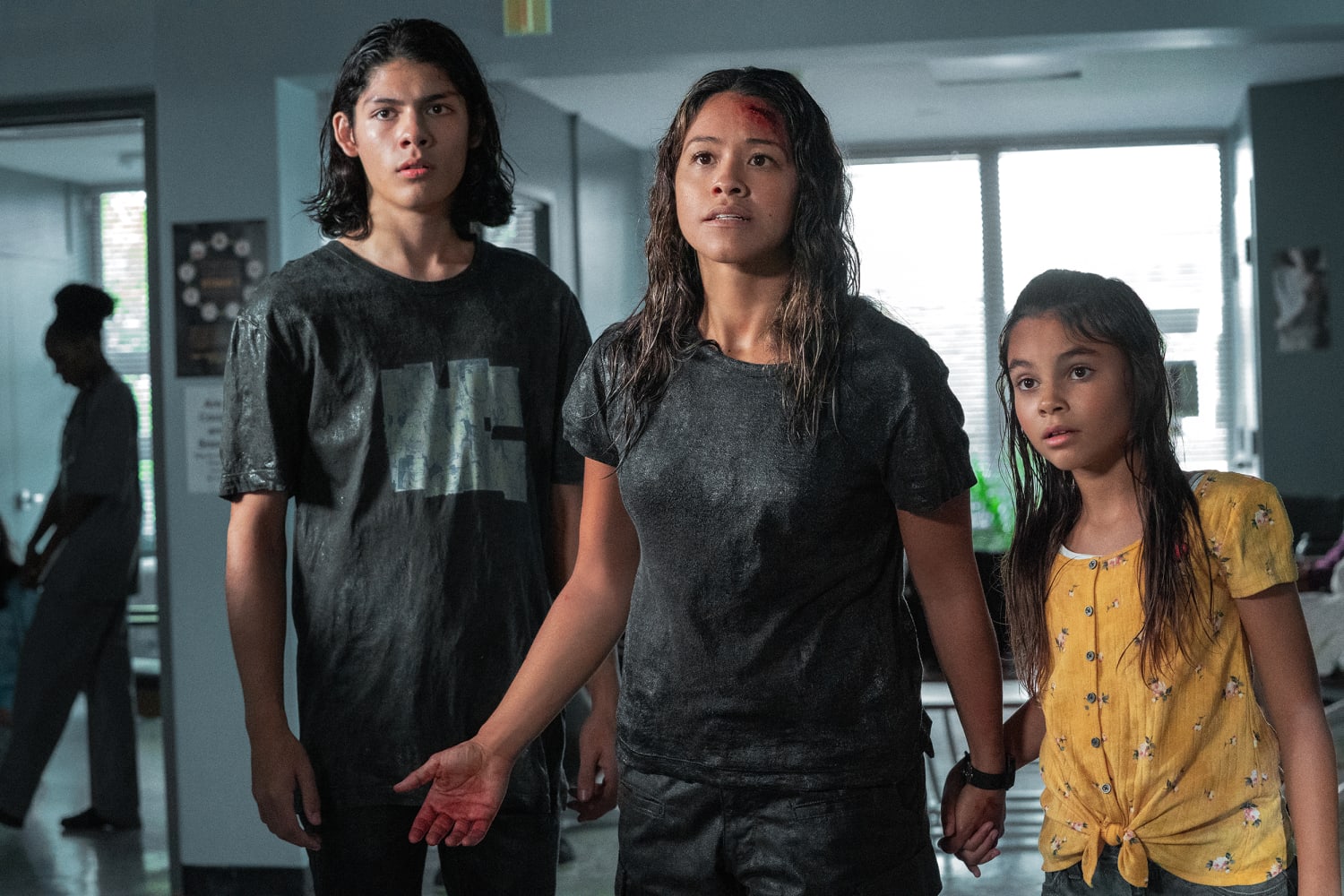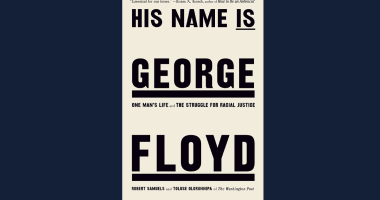
The new Netflix film “Awake” is a story about a desperate mother trying to save her children in the middle of a mental-health apocalypse — in other words, an obvious effort to reproduce the break-out success of Netflix’s enormous 2018 hit “Bird Box.” But a story about mysterious worldwide global apocalypse feels different after the pandemic, and “Awake” takes advantage of that with a hyperconscious focus on the ways in which both the public’s and the government’s reaction to a disaster can be as ugly as the disaster itself.
Directed by Mark Raso, “Awake” stars an intense Gina Rodriguez as Jill, a veteran currently working as a security guard at a medical facility, who is also a recovering addict and thief. While Jill is driving her two semi-estranged children home, the power system in her car goes out. After the crash, they discover that all electrical devices are out across the globe … and that, for some reason, no one is able to sleep any more.
In “Bird Box,” mysterious invisible creatures caused everyone who saw them to go suicidally or homicidally insane. Humans did terrible things to one another as a result, but that wasn’t really their fault. And the main drama of the story was about the difficulty of operating blindfolded in a world where a glance the wrong way can kill you.
In “Awake,” the problem is that, without sleep, everyone on earth will die in a matter of weeks. Cognitive decline from sleep deprivation, however, doesn’t happen all at once; for most of the film, most people are still themselves and still responsible for their actions. Nonetheless — in a pattern that might be familiar to those who lived through the last year and a half in the U.S. — a crisis brings out the worst in many. Petty criminals and churchgoers alike engage in an orgy of selfishness and self-delusion. Rather than banding together to help one another, they do their best to speed the end of the world along.
A story about mysterious worldwide global apocalypse feels different after the pandemic, and “Awake” takes advantage of that.
“Awake” then, like the title says, is awake to human culpability and violence, and the drama centers on how the protagonist and her family navigate other people’s greed, anger and brutality. That navigation is made more difficult because Jill’s tween daughter Matilda (portrayed with impressive nuance by Ariana Greenblatt) is one of the few people unaffected by the worldwide bout of insomnia. Jill has to decide whether to turn her over to the government for testing or keep her out of their (not very trustworthy) hands.
Jennifer Jason Leigh is brilliant in a supporting role as a government psychiatrist specializing in sleep studies whose absent-minded-scientist charm barely conceals a ruthless capacity for atrocity. In a few hastily muttered asides, we learn that she and Rodriguez’s character worked together interrogating captives overseas: They’re both familiar with the effects of lack of sleep because they used sleep deprivation as torture.
In that context, the film almost feels less like an external, impartial account of the end of the world, and more like a guilty hallucination inside Jill’s head — or inside everyone’s head. The climactic scenes involving the U.S. military especially recall the cynicism of George Romero’s “Day of the Dead”: In a waking dream, the violence visited on others overseas haunts the strained and shaking forces of American order, who aim their massive firepower at the enemy in their own skulls.
That enemy is, in part, racism. The movie doesn’t discuss prejudice directly, and never plays on the connection between the title and the antiracist term “woke.” Nonetheless, much of it is devoted to a Puerto Rican woman trying to save her child from mostly white churchgoers, soldiers and medical personnel.
Jill’s quiet, tightly wound paranoia and mistrust is partly linked to her war experience, and partly a measure of her growing exhaustion. But it also reads as the well-earned and well-learned wariness of a woman of color who knows that good, kind white people and good, kind white doctors aren’t her friends, even when they offer her jobs or hug her affectionately.
Aja Hoggatt at Slate praised “Bird Box” for its post-racial diversity and for the fact that “characters of color or women are often the ones acting heroically.” But “Awake” goes considerably further, making a Puerto Rican woman its central character, and using apocalyptic imagery to reference ICE raids and involuntary medical experimentation directed at brown people and children of color.
Not everything in “Awake” actually works: The pseudo-scientific explanation for the apocalypse, for instance, is superfluous and it would probably have been better to just keep the mystery open-ended. The same goes for the overly simplistic explanation for Matilda’s immunity to insomnia, which viewers are likely to figure out before anyone on screen does.
The movie works best as an atmospheric, surreal vision; the more it tries to add in sober, generic plot elements, the less involving it is. Still, if we had to have a “Bird Box” knockoff, we couldn’t have asked for one much better than this: a movie that looks unblinkingly not at some future fantastic apocalypse, but at our own ongoing nightmares.
Source: | This article originally belongs to Nbcnews.com










